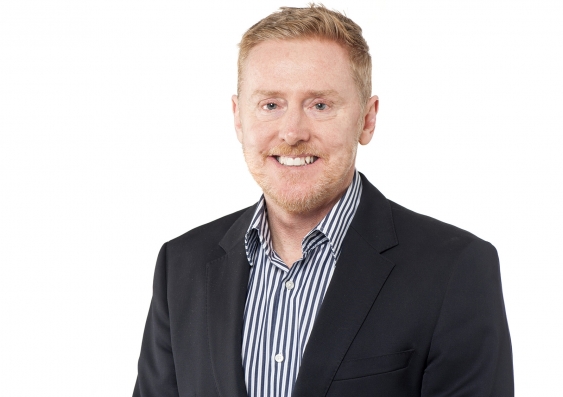$5m grant to help improve health outcomes for people who suffer a stroke
An international leader in stroke medicine at UNSW Sydney receives an NHMRC Synergy grant to lead a multidisciplinary team.
An international leader in stroke medicine at UNSW Sydney receives an NHMRC Synergy grant to lead a multidisciplinary team.

Estelle Jones
Kirby Institute Communications Officer
+61 (02) 9385 9987
e.jones@kirby.unsw.edu.au
UNSW Medicine & Health’s Professor Mark Parsons has been awarded a $5 million National Health and Medical Research Council (NHMRC) Synergy Grant to develop a unique platform powered by artificial intelligence (AI) and health data analytics that will deliver efficiently powered trials to provide new knowledge about stroke.
Prof. Parsons, who is professor of Medicine and Neurology at UNSW South Western Sydney Clinical School, is a Chief Investigator (CI) on the SERPICO project – synergistic enhancement of research design with precision analytics to improve clinical outcomes in stroke. Professor Ken Butcher, Director of Clinical Neurosciences at Prince of Wales Clinical School at UNSW Medicine & Health, and Associate Professor Andrew Bivard, at South Western Sydney Clinical School, are also CIs on the project.
“This grant will allow us to build on our previous globally impactful work, with a revitalised, more diverse multidisciplinary team that includes new members. It will also allow us to capture our synergies through a number of projects across new domains which have previously been siloed, for example, cognitive sciences and health economics,” Prof. Parsons said.
“The SERPICO program is particularly exciting as we have assembled a unique team of established researchers – including leading clinician researchers – who will support and mentor a new generation of promising early career researchers. We hope that, as a result, they will be able to accelerate their own careers and build desperately needed ‘research translator’ capacity.
“Of course, ultimately, we hope that the SERPICO program will lead to new discoveries that will translate into improved health outcomes for people who suffer a stroke.”
Read more:
UNSW Pro Vice-Chancellor, Research, Scientia Professor Sven Rogge said this Synergy funding affirms the dedication and ingenuity of UNSW researchers and their teams in improving the lives of people in Australia and around the world.
“This NHMRC Synergy grant highlights the quality and depth of the research undertaken by UNSW academics in tackling major health issues facing society. I am proud of their deep commitment and innovation using state-of-the-art data science in a clinical setting to tackle stroke.”
Dean of UNSW Medicine & Health Professor Vlado Perkovic congratulated Prof. Parsons and the team on their grant success.
“Stroke is still the leading cause of adult disability in the developed world, despite significant advances over the last 10 years. The SERPICO project has the potential to improve the health outcomes and impact the lives of those who have suffered a stroke,” he said.
“This funding announcement is a wonderful recognition of the work of Professor Parsons and Professor Butcher, and the broader team, and their work in this field.”
Prof. Parsons said they have assembled a diverse, multidisciplinary team across a suite of new clinical trials for stroke with cutting-edge statistical design. In parallel, they will use their current extensive stroke clinical and advanced imaging datasets to develop AI-driven methods that will support clinician decision-making.
According to Prof. Parsons, the team will also develop and validate a completely new set of cognitive and physical frailty measures to both predict and measure stroke outcomes.
“The work will be carried out with an embedded health economic analysis, supported by our established infrastructure and underpinned by our successful philosophy: right measure, right time, right patient, right treatment,” he said.
NHMRC Synergy Grants support outstanding multidisciplinary teams of investigators to work together to answer major questions that cannot be answered by a single investigator.
The SERPICO team includes researchers from UNSW, University of Melbourne, University of Newcastle, Deakin University, Monash University, Western Sydney University and University of Sydney. Key research institutes/centres include The George Institute, The Ingham Institute for Applied Medical Research and the Melbourne Brain Centre. A number of partners and the are also involved.